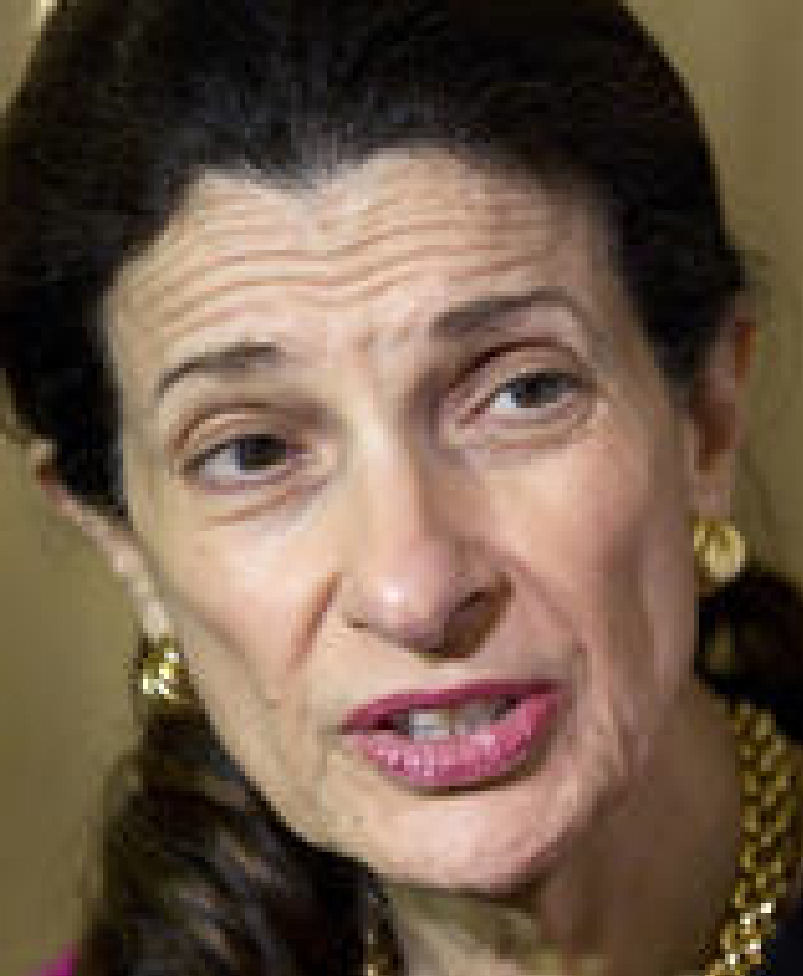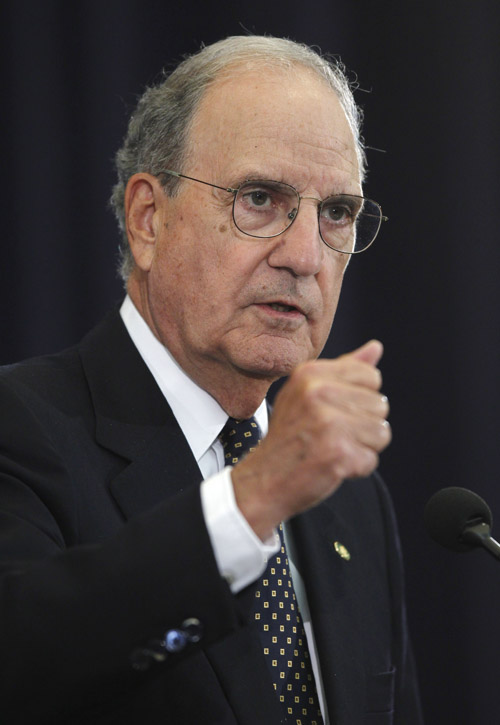AUGUSTA — A popular U.S. senator considered a cinch for re-election shocks Maine’s political establishment by deciding not to run.
Overnight, state officeholders, past politicians and a number of newcomers seeing a better-than-ever chance to get elected jump into the fray.
Congressional primaries take odd shapes as contestants leap from one race to the other, and political prognosticators have a field day working the angles, weighing the odds and trying to figure out who’s in and who’s out.
Sound familiar? That was the political scene in 1994, after Democratic Sen. George Mitchell announced he would leave the Senate.
“It was quite a circus,” recalled Jean Hay Bright, one of seven candidates who crowded into the 2nd District Democratic primary race that ensued.
“Dizzying” is how Steve Zirnkilton, one of the four Republicans vying for the same House seat, remembered it.
“It was chaotic,” said Richard Bennett, who won that GOP primary and is now weighing a run for Snowe’s seat. Then as now, “change was in the air,” he said.
The vacuum left by Mitchell’s departure led to the election of Olympia Snowe, whose announcement 18 years almost to the day after Mitchell’s stunner had a similar seismic impact on Maine politics.
It was March 1994 when Mitchell said he was leaving the Senate because it was time for new challenges, even though he didn’t know what he’d do next. Eventually, he became the U.S. envoy to Northern Ireland and to the Middle East.
Snowe dropped her bomb Feb. 29, saying she’s grown weary of the polarization in Congress where she remained one of the last of the disappearing moderates.
The chain reaction was immediate. Former independent Gov. Angus King declared his candidacy for Snowe’s seat. Interest in the seat spread to all three of the state’s constitutional officers: Secretary of state Charlie Summers, Treasurer Bruce Poliquin and Attorney General William Schneider. The Republicans joined a field that had already been in place before Snowe’s shocker.
Both Democratic U.S. Reps. Mike Michaud and Chellie Pingree expressed interest before deciding to stick with their House races.
Once Michaud and Kevin Raye, the Republican state Senate president and 2nd District House candidate, decided to forget about Snowe’s seat, their House contest became clear. But the 1st District field waxed and waned as contestants weighed Senate and House runs.
The fields will sort themselves out further after Thursday’s deadline arrives for candidates to file qualifying petitions for the June primary ballot. It could be a crowded one, as it was in 1994.
That year, Snowe, then a congresswoman, and fellow U.S. Rep. Tom Andrews, a Democrat, quickly emerged as the anointed Senate contestants. That shifted the rush to the two congressional races.
In Andrews’ district, each party had a four-way primary. Republican James Longley Jr. eventually won the seat.
In Snowe’s district, four Republicans entered the primary. Bennett, a former state Senate president and now national GOP committeeman, won.
Seven Democrats jumped into their own primary race. That didn’t leave the candidates much of a chance to speak their minds in debates, Hay Bright said. “You didn’t get much time to do anything.”
The man who beat Bennett in the district’s general election, John Baldacci, who went on to serve two terms as governor, is now also looking with interest at the empty Senate seat.
The 1994 race had extra intrigue in the form of an open race for governor. King, who’s angling for Snowe’s seat, won a five-way general election race with 35 percent of the votes. That was after a five-way Democratic primary, and an eight-way GOP primary that was won by Susan Collins, who’s now destined to become Maine’s senior U.S. senator.
Send questions/comments to the editors.




Success. Please wait for the page to reload. If the page does not reload within 5 seconds, please refresh the page.
Enter your email and password to access comments.
Hi, to comment on stories you must . This profile is in addition to your subscription and website login.
Already have a commenting profile? .
Invalid username/password.
Please check your email to confirm and complete your registration.
Only subscribers are eligible to post comments. Please subscribe or login first for digital access. Here’s why.
Use the form below to reset your password. When you've submitted your account email, we will send an email with a reset code.